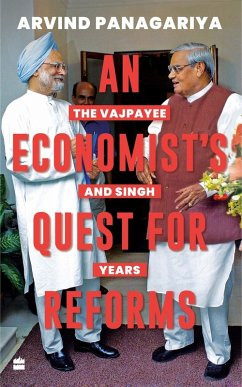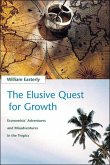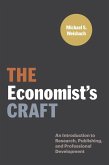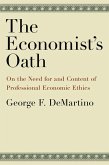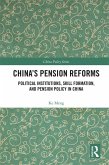In this volume, veteran economist Arvind Panagariya compares two Prime Ministers' approach towards economic reforms-Atal Bihari Vajpayee and Manmohan Singh. He shows how the Vajpayee government was almost relentless in pursuit of reforms and enacted them in all areas, save a few. In his opinion, along with Prime Minister P.V. Narasimha Rao, Vajpayee 'must be credited with laying the foundation of the new India'.
Vajpayee lost the parliamentary elections of May 2004, which led to the emergence of the Congress-led United Progressive Alliance (UPA) that ruled the country till May 2014. Although Dr Manmohan Singh, who had been the finance minister when India's economy was liberalized, served as the prime minister during both these terms, reforms came to a standstill. Social spending largely became a substitute for economic reforms. However, in its first term, the UPA did not do anything to either disrupt the prior reforms or introduce anti-growth policies. As a result, the economy grew at an 8 per cent-plus annual rate. Unfortunately, in its second term, the UPA turned outright anti-reform, taking numerous steps that eventually led to a drop in the growth rate during its last two years. Dr Panagariya analyses the reasons behind this.
A book that highlights the importance of economic reforms to the public and to policymakers, An Economist's Quest for Reforms is essential reading to understand India's economic trajectory.
Vajpayee lost the parliamentary elections of May 2004, which led to the emergence of the Congress-led United Progressive Alliance (UPA) that ruled the country till May 2014. Although Dr Manmohan Singh, who had been the finance minister when India's economy was liberalized, served as the prime minister during both these terms, reforms came to a standstill. Social spending largely became a substitute for economic reforms. However, in its first term, the UPA did not do anything to either disrupt the prior reforms or introduce anti-growth policies. As a result, the economy grew at an 8 per cent-plus annual rate. Unfortunately, in its second term, the UPA turned outright anti-reform, taking numerous steps that eventually led to a drop in the growth rate during its last two years. Dr Panagariya analyses the reasons behind this.
A book that highlights the importance of economic reforms to the public and to policymakers, An Economist's Quest for Reforms is essential reading to understand India's economic trajectory.
Dieser Download kann aus rechtlichen Gründen nur mit Rechnungsadresse in A, D, L ausgeliefert werden.

